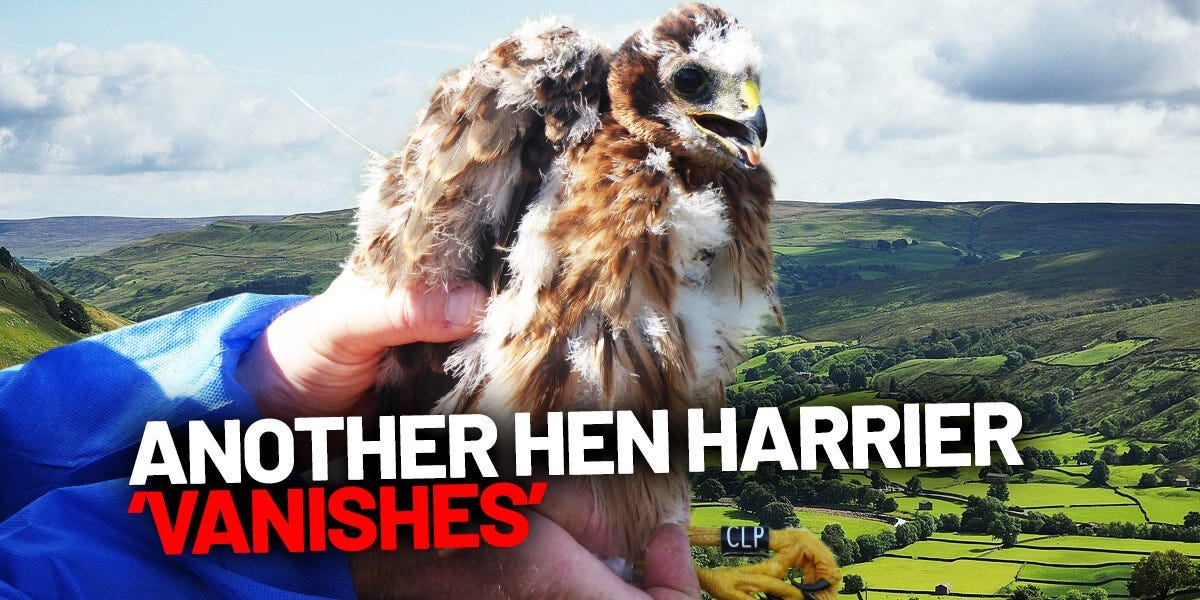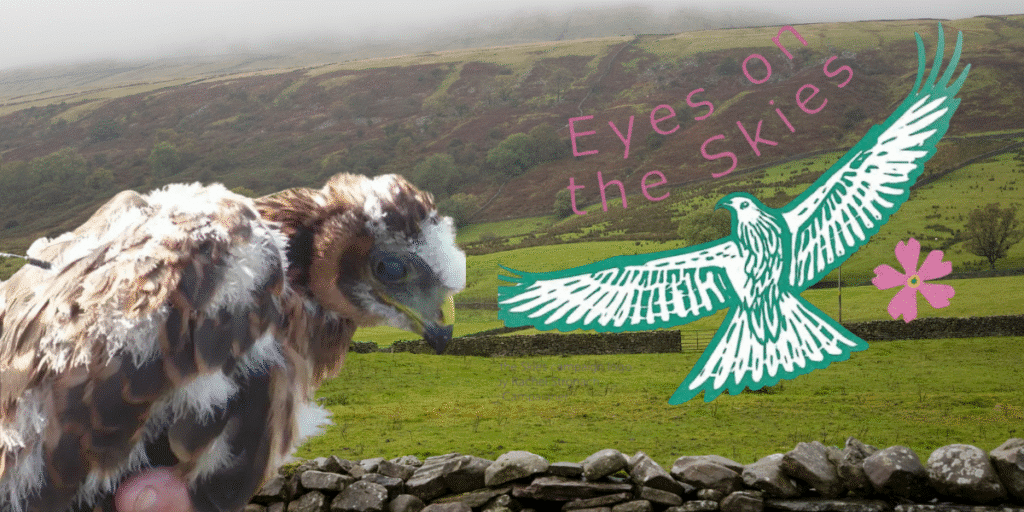A Yorkshire Dales charity is launching a new campaign to tackle the national park’s appalling reputation as a ‘blackspot for raptor persecution’.
The Yorkshire Dales, a national park dominated by grouse shooting, is well-known for shocking levels of raptor persecution – the illegal killing of birds of prey. Data suggests that twenty-nine satellite-tagged Hen Harriers have gone ‘missing’ inside the park and thirty-nine other raptors – including Peregrines, Red Kites and Buzzards – have been found poisoned, trapped or shot there since 2015.
The area includes Nidderdale which was slammed by the RSPB as the ‘bird of prey poisoning capital of Britain’ following the notorious ‘Nidderdale cocktail’ poisoning incidents of 2022.
Friends of the Dales, who have more than 40 years experience of taking direct action on issues of critical importance to the Dales, is calling for an end to the unlawful killings
Failed partnership
They will have their work cut out. The new campaign comes just months after the collapse of a ‘partnership’ specifically designed to tackle the shocking levels of raptor persecution in the park.
Yorkshire Dales Bird of Prey Partnership was launched in 2020, but was shuttered in August this year. It had been set up as part of The Yorkshire Dales National Park Management Plan 2019-24, which had an objective to: “work with moorland managers and other key stakeholders to devise and implement a local approach to end illegal persecution of raptors”
The ‘partnership’ consisted of representatives from the grouse-shooting industry, the Yorkshire Dales National Park Authority, the raptor conservation community (including the Northern England Raptor Forum (NERF, who walked away in 2024), the RSPB (who walked away in 2023 because of shenanigans by the Moorland Association), Natural England (who in March 2025 announced that it wouldn’t continue with ‘brood meddling’ of Hen Harriers because their illegal killing “had continued”), Police, and the Nidderdale AONB (now the Nidderdale National Landscape) Authority.
Explaining the decision to shut down the ‘partnership’, David Butterworth, Chief Executive of the Yorkshire Dales National Park Authority acknowledged in August that raptor persecution had continued to be a major issue for the area.
We wrote at the time that this was despite the moorland owners and their lobby groups insisting they have a ‘zero tolerance’ for wildlife crime…though the likes of the Moorland Association’s Andrew Gilruth’s hiding behind the frequent claim of ‘unsubstantiated’ (ie not proven, an incredibly difficult task when crimes take place on huge often remote estates and owners don’t hand over employees) is a more accurate reflection of where their mindset really lies.

Sita
Pressure on the park has been building recently. In August this year the RSPB published an update on ‘Sita’, a young female Hen Harrier satellite-tagged in Lancashire’s Forest of Bowland in 2024. Sita ‘vanished’ from near a winter roost on an unnamed grouse moor in the Yorkshire Dales National Park in February this year, and neither her nor her tag have been seen again.
The RSPB said that Sita was “likely to have been shot”.
Jonathan Riley, Chair of Trustees at Friends of the Dale, says the time has come to deal with the issue.
“It is appalling that the Hen Harrier, one of the UK’s rarest birds, continues to be shot, trapped, and poisoned in our National Park, which should be a sanctuary for wildlife.”
New management plan
In early 2024, more than 1,000 people responded to a consultation on the new Management Plan for the Yorkshire Dales National Park, with the illegal persecution of birds of prey emerging as one of their biggest concerns.
Friends of the Dales say they are reflecting public concern over bird of prey crimes, and that their Eyes on the Skies campaign supports one of the core objectives of the new Management Plan. The campaign will support the work of other organisations such as the National Wildlife Crime Unit, RSPB, and Hen Harrier Action.
The launch event for Friends of the Dales’ new campaign, Eyes on the Skies, will take place on October 21 with Kate Jennings, UK Head of Site Conservation & Species Policy at the RSPB.

